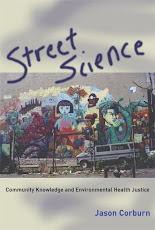 |
| Source: Photo by Marisa Asari |
The
UC Berkeley Center for Global Healthy Cities and the Institute of Urban and
Regional Development hosted a semester long seminar facilitated by Dr. Jason
Corburn, professor of City and Regional Planning and Public Health, and Aníbal
Gavíria, the former mayor of Medellin (2012-2015) and former governor of
Antioquia, Colombia (2004-2008). The seminar took a comprehensive look at the
transformation of the city of Medellin, once known as the most dangerous city
in the world, to now a global example of equitable and inclusive planning.
Guest
speakers included Jorge Pérez Jaramillo, former Dean of the school of
Architecture at the University of Antioquia and Director of Planning for the
city of Medellin (2012 – 2015); Diane Davis, Chair of Urban Planning and
Design at Harvard’s Graduate School of Design; Carlos Cadena, Professor
at EAFIT University; and Magdalena Cerdá, Associate Professor of
Emergency Medicine and the Vice Chancellor’s Chair in Violence Prevention at UC
Davis. The seminar was structured around a series of lectures by professor
Corburn, former mayor Gavíria and guest speakers, focused on specific projects
and processes that contributed to violence and poverty reduction in Medellín.
Topics included the city's affordable and integrated transport system,
increased spending on education and culture, alternative conflict resolution
mechanisms, youth programs, and participatory forms of planning and budgeting.
A city transformed
The
city of Medellin is located in the Aburra Valley, in the department of
Antioquia in central Colombia. It is bisected by the Medellín River that flows
south to north through the valley, and has been an industrial and manufacturing
hub for the department and country since the 1800s. This ideal setting and
economic success is contrasted by Medellín’s alarming homicide rate, reaching
its height in 1991 with nearly 400 homicides per 100,000 inhabitants. In the
last two decades, the city has lived a tremendous reduction in violence; by 2015, the homicide rate decreased by 95%, at 20 per 100,000 inhabitants.
 |
| Homicide rate in Medellín 1978 - 2015 (Source: Alcaldía de Medellín) |
As
a result of this impressive social transformation, Medellin has received a
tremendous amount of global recognition, most notably the Lee Kuan Yew World
City Prize in 2016, and as host of the 7th World Urban Forum in 2014.
Cities for Life
Throughout
the seminar, Mayor Gaviria walked the students through several of his
administration’s greatest achievements, most notably Unidades de Vida
Articulada (UVAs), the River Parks Project, and vast investment in education, as well as
critical contributions of past administrations and collective work on behalf of
Medellín’s citizens including the Metro and Metrocable system, library
parks, and public escalators in Comuna 13. Through investing in
the populations with the greatest need, mayor Gaviria and his predecessors were
able to regain public institutional trust, and improve safety for the residents
of marginalized neighborhoods. These programs were part of his administration’s
goals to create a city for life, where strategic interventions
were implemented through multidimensional strategies to reduce violence,
increase education, and promote inclusivity for all.
 |
| UVA de Los Sueños (Source: ArchDaily) |
 |
| Source: Photo by Marisa Asari |
The ongoing conversation
The
seminar ultimately revealed an imperfect story of a city that has reemerged out
of a period of violence and trauma, one that offers valuable lessons for global
cities but continues to grow and learn as it grapples with issues of inequality
and poverty.
Challenging
the common narrative of utopian success surrounding Medellin’s transformation,
the seminar also addressed the city’s continued challenges. Hazardous pollution
levels, heavy traffic, environmental degradation, and socioeconomic inequality
are at the forefront of the municipal agenda, and are key focus areas of a new
Metropolitan Plan for Medellín and the nine surrounding cities, currently being
drafted by the Metropolitan Authority. Seminar participants raised concerns and
discussed future development in the metropolitan area, adding to ongoing
research at IURD that supports the metro area planning process and the
evaluation of proposed urban interventions.
“I believe that all the good practices and
experiences of Medellín are interesting to study and analyze, but these
“recipes” always have to be adapted to be relevant to the other societies, to
other territories, and to other cities. I see the innovations of urban
development in Medellín not as photocopies that can be taken to another site
and simply printed there, but I do believe that all the innovations of Medellín
can provide a source of learning for other cities with geographical
similarities or even differences. “
Anibal
Gaviria, former mayor of Medellin
 |
| Anibal Gavíria Correa, former mayor of Medellín (Source: Photo by Marisa Asari) |
Beyond the seminar
The
Institute for Urban and Regional Development, directed by Professor
Jason Corburn, is continuing its research and assisting the Metropolitan
Authority of the Aburra Valley and the city of Medellin, with its Metropolitan
Plan for Territorial Organization (PEMOT). The planning process, led by Jorge
Perez Jaramillo and his team of researchers in Medellin, will continue the legacy of mayor
Gaviria’s Cities for Life concept and continue to promote
inclusivity, equitable transportation, environmental conservation, continued
investment in education, and health equity.
For
more on the seminar outcomes and updates on ongoing work, visit iurd.berkeley.edu
By Marisa Asari & Matthew Palmquist







